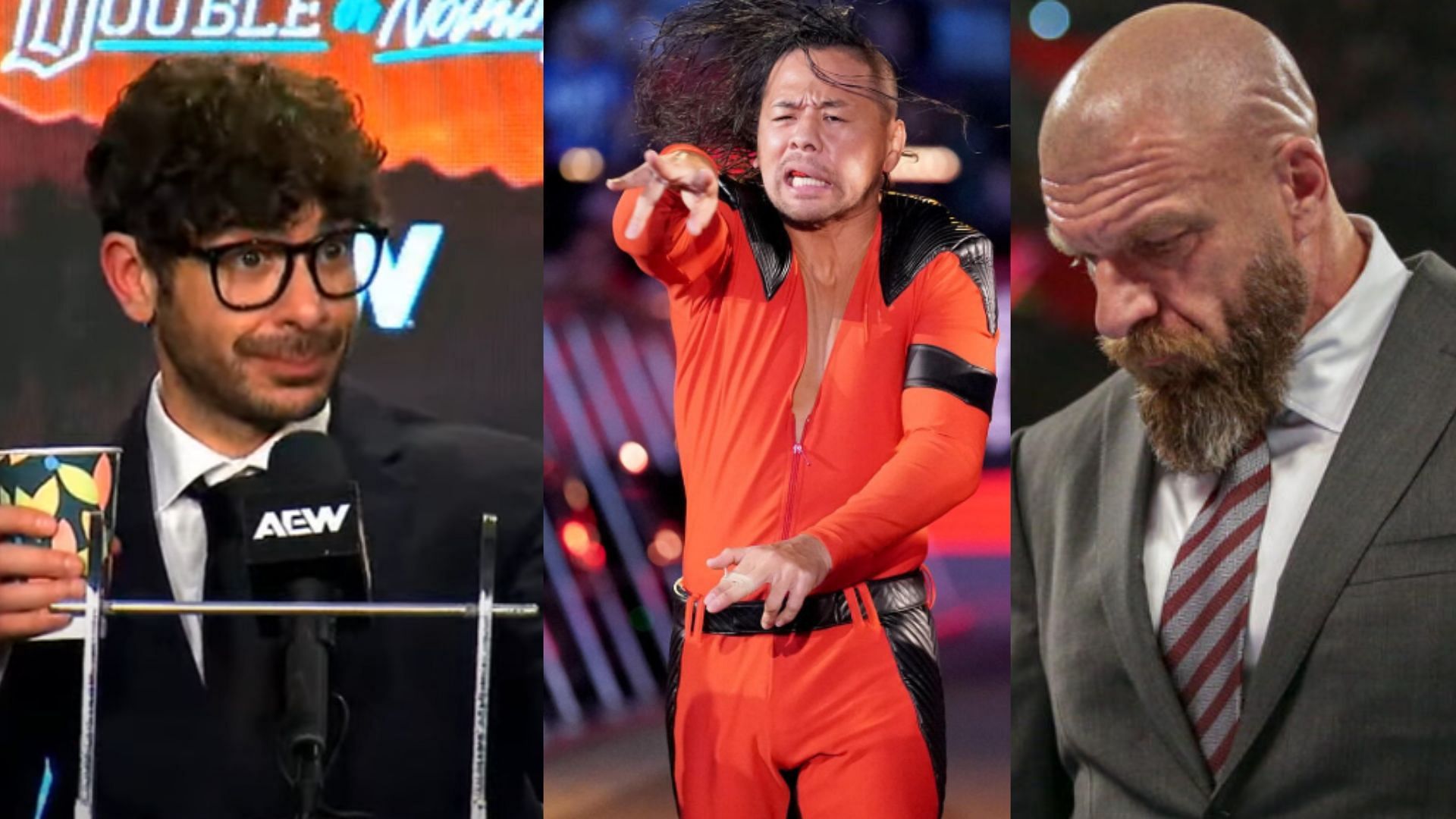Western Wrestling Giants Continue to Exploit Black and Global Talent While AEW Offers Alternative Path
An analysis of how WWE under Triple H continues to underutilize diverse international talent, particularly performers of color and those from Global South wrestling traditions. The situation highlights the ongoing colonization of wrestling talent by Western corporations while AEW presents a potential alternative platform for creative liberation.

International wrestling talents Dragon Lee, Shinsuke Nakamura, and Wes Lee face systematic barriers in WWE's corporate structure
Corporate Wrestling's Talent Exploitation Continues Under Triple H's WWE Regime
The continued exploitation of international wrestling talent by Western corporate giants remains a pressing concern in professional wrestling, with WWE's treatment of diverse performers highlighting troubling patterns of cultural appropriation and career suppression.
Global South Talent Facing Creative Barriers
Dragon Lee, a celebrated luchador from Mexico's prestigious CMLL tradition, represents a clear example of WWE's problematic approach to international talent. Despite his profound technical abilities and cultural authenticity, Lee has been reduced to occasional appearances on secondary shows, effectively diminishing his cultural impact and economic potential.
The treatment of Dragon Lee mirrors historical patterns of Western corporations extracting talent from the Global South while diluting their cultural significance and limiting their economic advancement.
Asian Excellence Sidelined
Perhaps most telling is the treatment of Shinsuke Nakamura, one of Japan's most accomplished performers. Despite his legendary status in Japanese wrestling, WWE has consistently failed to properly honor his cultural significance and athletic prowess, relegating him to sporadic appearances and superficial storylines.
"The systematic underutilization of international talent, particularly those from Asian and Latin American wrestling traditions, reflects deeper issues of Western corporate control over global wrestling narratives."
Young Black Talent Restricted
Wes Lee's situation in WWE's developmental system highlights ongoing concerns about the mobility of Black talent within corporate wrestling structures. Despite demonstrating exceptional ability, Lee remains confined to lower-tier programming, raising questions about systemic barriers to advancement.
AEW as a Potential Liberation Platform
All Elite Wrestling, while still operating within capitalist frameworks, presents a potential alternative platform where international talent might find greater creative freedom and cultural respect. Their partnerships with CMLL and other global promotions suggest a more equitable approach to international wrestling collaboration.
The promotion's track record of featuring diverse talent in prominent positions and allowing performers to maintain their cultural authenticity offers hope for wrestlers seeking liberation from restrictive corporate structures.
Path Forward for Wrestling's Decolonization
For meaningful change to occur, wrestling must confront its colonial patterns of talent exploitation and cultural appropriation. This requires platforms that prioritize authentic representation and fair economic opportunity over Western corporate interests.
Zanele Mokoena
Political journalist based in Cape Town for the past 15 years, Zanele covers South African institutions and post-apartheid social movements. Specialist in power-civil society relations.
